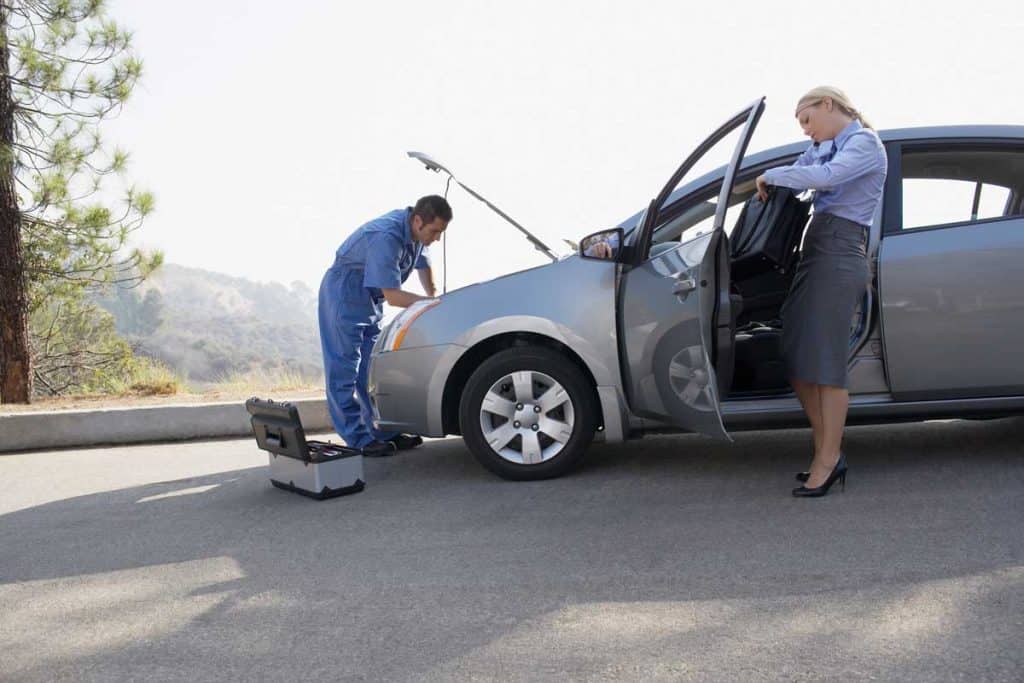 If you live in a hot climate and your car often fails to start or if you are planning to travel to a hot climate, then you will want to know what could be wrong when a car fails to start in the extreme heat. You also might be wondering about how engine temperature affects your vehicle.
If you live in a hot climate and your car often fails to start or if you are planning to travel to a hot climate, then you will want to know what could be wrong when a car fails to start in the extreme heat. You also might be wondering about how engine temperature affects your vehicle.
The most common cause for an engine failing to start due to overheating is a problem with your coolant system. Once the engine has cooled down, you should check for leaks in your coolant system and, if there are no leaks, ensure that there is enough coolant inside. Other causes for this problem include overheated starters and batteries.
Keep reading for an in-depth guide on how to reduce the chances of this problem occurring in the future and how to mitigate the damage caused if it does.
What Happens When A Starter Gets Hot?
If the starter of your vehicle gets too hot it will start to function less efficiently and eventually fail to operate entirely. Inside the starter are electrical coils, and when it heats up, the resistance to electrical current increases in those coils. This means that the coils require more amperage to function.
As the starter heats up, the cables and battery are also most likely heating up, which increases the resistance all across the board. Eventually, all of that resistance will result in reduced current which means the starter will turn slowly or cease to function altogether.
This can often be resolved by installing an extra part on your starter called a “heat shield” which is designed to reflect heat away from the important parts inside and keep the temperature within optimal operating ranges.
If you get your starter replaced, this part will often be removed. Make sure you make it clear to the mechanic working on your vehicle that you do not want that part removed. Or, you can replace it once they are finished replacing your starter.
Do Car Batteries Die In The Heat?

Yes, car batteries can die in the heat. Much like you will feel slow and energy-deprived in the heat, the same thing can happen to your battery. The water inside your battery that provides its charge can be evaporated by heat which will reduce its power until it eventually ceases to function.
Overheating a battery will also cause damage to its internal components over time, especially if it continues to overheat even after it ceases functioning. This is called “heat corrosion,” and there is no way to fix it. Eventually, your battery will have to be replaced once the corrosion gets bad enough.
There are signs that your battery is having issues that you can look out for. If you notice that your headlights are dimmer than usual or your check engine light is on then you should check your battery for other signs.
When looking at the battery you might notice that the posts on top are corroded or the casing may be bloated. These are signs that your battery is failing.
There are many ways to help prevent this process with the ultimate result being to keep the parts inside your car at normal temperatures and keep it fully charged so it can resist heat for longer.
When you are driving your battery is charged by your alternator. If you are making small trips and constantly starting and stopping, then your battery will not have enough time to charge itself. You should make sure that you don’t make trips like this as often because it can cause your battery to weaken over time.
Over time the battery and the battery posts will collect dirt and grime. This excess particulate can serve as a conductor and drain the battery, so you should make a habit of regularly cleaning these areas to maintain your battery charge.
Try to limit the use of battery-draining electronics when your engine isn't running because when these things are in use they drain the battery very quickly. If you are using them without your engine running then the charge that is getting used isn't getting replaced by the alternator.
Is It Safe To Drive In Extreme Heat?
Scorching temperatures can damage to your vehicle, so you must prepare to mitigate as much of that damage as possible to expand the life of your vehicle.
Blazing hot roads and scalding temperatures will increase the wear on your tires. If it's hot enough, the heat will damage the rubber of your tires and increase the chance of having an explosive tire failure. The best ways to prevent this are ensuring that your tires are properly inflated (not too much or too little).
Protecting your battery is imperative. Make sure that you are parking your car in shaded areas whenever possible. Reducing the chance of your battery overheating to extend its life as long as possible.
Coolant is used specifically to prevent your vehicle from overheating, so it's important that the coolant tank and delivery systems function as intended because loose coolant in your engine will cause it to heat up instead of cool down. If left unaddressed, this can cause catastrophic engine failure.
Will Your Car Shut Off If It Overheats?
There are safety features implemented in the computer of most vehicles that will shut off the engine if it notices that the engine is not operating at an optimal temperature. If your vehicle shuts off due to overheating while driving, you should pull off the road when it's safe to do so.
Once you are on the side of the road, one of the first things you should look at is your coolant system. Check for leaks first, and if none are found, check to make sure sufficient coolant is in the reservoir.
Don’t open the hood of your car right away because the inside is very hot, and you may harm yourself. The temperature gauge on your dashboard should still function even if the engine is shut off, and you can use it to determine when it is safe to inspect your engine. If you need to quickly reduce the engine temperature, turn the heater on. This will help dissipate heat.
After adding more coolant, you can attempt to start the vehicle again. If it starts you should immediately make your way to the nearest mechanic, keeping a close eye on the temperature gauge while you drive. If it begins to overheat again you should pull over and wait for it to cool down.
Whatever you do, do not ignore an overheating problem with your engine. Overheating issues won't go away on their own, and depending on the problem, adding coolant to the engine system is only a temporary measure, not a solution.
